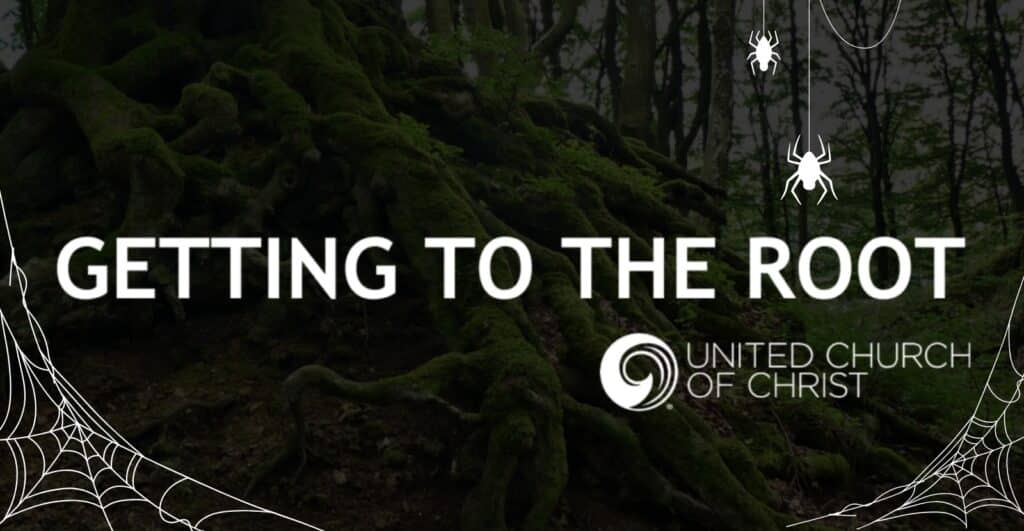The Doctrine of Discovery: Why it still Matters Today
We’ve asked our staff to help us unpack the complex justice issues that we’re working on. Using our General Synod pronouncements as the basis for these reflections, we hope to provide insights into the issues you care about that are rooted in our shared faith, and can inform your advocacy efforts. This month Elizabeth Leung, our Minister for Racial Justice, reflects on the Doctrine of Discovery – a theological document that originated in the early European church, and was (and is to this day) used as a legal basis for ignoring and invalidating claims to property by Native American Communities. Learn more about actions taken by General Synod 29 to address this injustice.
The Doctrine of Discovery: Why it Still Matters Today
“[T]he native people[s] were never lost and they are not lost now. They were exactly where the Creator put them; therefore, they cannot be discovered. They already know the Creator and the Creator knows them” – Adrian Maxey of the Dakota Association, speaking in his native language, reminded the delegates of General Synod.
Many Americans grow up learning that this continent was “discovered” by Christopher Columbus. The concept of discovery, as if the land was empty prior to arrival and its indigenous inhabitants were somehow “less than” the explorers is, at its heart, racism and cultural superiority.
The doctrine of discovery, a concept of public international law expounded by the United States Supreme Court in a series of decisions, originated from various church documents in Christian Europe in the mid-1400s to justify the pattern of domination and oppression by European monarchies as they invasively arrived in the Western hemisphere. It theologically asserted the right to claim the indigenous lands, territories, and resources on behalf of Christendom, and to subjugate native peoples around the world.
In 1823 U.S. Supreme Court case of Johnson v. M’Intosh, Chief Justice John Marshall used the doctrine to assert that the United States, as the successor of Great Britain, had inherited authority over all lands within our claimed boundaries. This decision allowed our government to legally ignore or invalidate any native claims to property. To this day courts continue to cite this legal precedent. It is still being used by courts to decide property rights cases brought by Native Americans against the U.S. and against non-Natives.
In the 21st century U.S., that legacy of domination is reflected in the undermined sovereignty of our indigenous communities and through Congressional and Federal assertions of power over the tribes. We see this lived out through injustices in water rights, oil and mineral extraction on native lands, border and immigration policies which negatively affect tribal communities, and the impact of sequestration budget cuts on native communities, to name a few.
The delegates of General Synod 29 decided to speak out about this historic and ongoing injustice last June. They voted overwhelmingly for a Resolution of Witness to repudiate the Doctrine of Discovery. The resolution declares and confesses the doctrine to be a shameful part of our church history and that of the U.S. We resolve to not only educate our congregations about it, but also take actions to repair the relationship with American Indians, Native Hawaiians and Alaskan Natives.
Thanksgiving is an important time for reflecting and remembering our history.
The town of Plymouth, Massachusetts has erected a plaque – erected by the Town of Plymouth on behalf of the United American Indians of New England which states: “NATIONAL DAY OF MOURNING.” To many Native Americans, Thanksgiving Day is a reminder of the genocide of millions of their people, the theft of their lands, and the relentless assault on their culture. It is a day of remembrance and a protest of the racism and oppression, which Native Americans continue to experience.
In 2008, Congress passed the House Joint Resolution 62 for the Friday after Thanksgiving to be designated as “National Native American Heritage Day.” It is a small step in our willingness to balance the misleading historical narrative of “discovery” and to recognize the true Native American history — of thriving economies and sophisticated systems of government which existed long before many of our ancestors came to this land, something that is rarely taught to our children or mentioned in our schools.
We can struggle, heal and work together for justice for our Native American brothers and sisters.
As we learn about the doctrine of discovery: the genocide of native peoples, the dispossession that generations have sustained as their lands were stolen, their languages destroyed, and their culture appropriated by European settlers, it can trigger different emotional responses in those of us whose ancestors are immigrants, voluntary or enslaved, to this continent.
With God’s grace, may we move forward in compassion and resolve in our hearts and actions to stand in solidarity with our indigenous sisters and brothers and neighbors: learning about the histories and cultures of native peoples in the area we live and work, advocating for the public policies and social conditions that respect the sovereignty and self-determination of Native American.
Related News
Don’t be Scared, be Prepared: What to Expect in the 2024 November Election
With November 5th approaching fast, it can be difficult keeping the election anxiety at bay....
Read MoreCountering Project 2025 With Love: A UCC Response
Project 2025 is a compilation of policy proposals and presidential transition project launched...
Read MoreOur Nuclear Legacy
This summer is the 79th anniversary of both the Trinity test that launched the atomic age, and...
Read More
